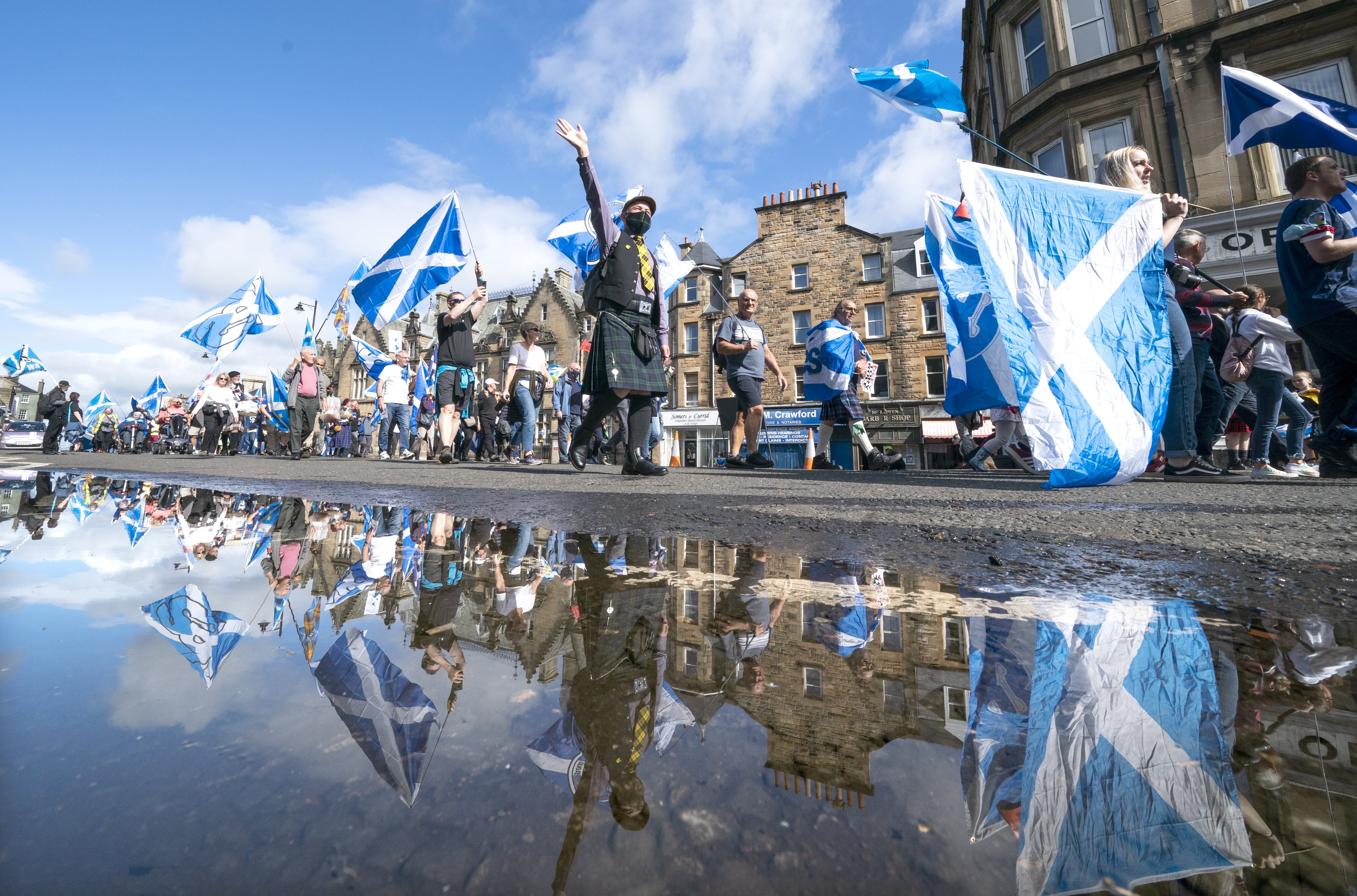No such thing as a de-facto referendum, says expert amid SNP plans for indyref2
Professor James Mitchell said elections and referendums ‘are quite distinct’.

Nicola Sturgeon’s plans to use the next Westminster election as a “de-facto referendum” on Scottish independence if her Government is prevented from holding another vote on leaving the UK have been questioned by a politics expert.
Professor James Mitchell, of Edinburgh University, insisted: “There’s no such thing as a de facto referendum.
“An election is simply not a referendum, a de-facto referendum or any other kind of referendum.”
He was speaking as Scotland’s Deputy First Minister was forced to clarify his remarks on what would be necessary for a general election to give the Scottish Government a mandate to start independence negotiations.
There are elections and referendums and they are quite distinct
John Swinney had initially suggested this could happen if the SNP won a majority of Scottish MPs in the next UK election.
However he later said on Twitter he had misheard the interviewer’s question, making clear that “nothing else” but a majority of votes would do.
Mr Swinney explained when he had been asked whether negotiations could start if his party wins a majority of Scottish constituencies, he “only picked up on ‘majority’.”
He added: “Referenda, including de facto referenda at a UK General Election, are won with a majority of votes. Nothing else.”
Prof Mitchell questioned plans to use the next Westminster vote in this way, as he insisted it is “not for a political party to dictate the terms of an election”.
Speaking to ITV Border’s Representing Border programme, the academic said: “There are elections and referendums and they are quite distinct.
“In an election the vote is allowed to choose what he or she wishes to choose to determine their vote. It doesn’t have to be about one issue, it is rarely about one issue, but about a range of issues.
“It is not for a political party to dictate the terms of an election.
“In a referendum the question is very clear, that is the whole point of a referendum, it is focused. There isn’t the same focus in an election.”
His comments came after First Minister Ms Sturgeon unveiled plans to hold a second vote of independence on October 19, 2023.
She said if that vote cannot take place, either because Westminster continues to block it or the Supreme Court rules the Scottish Government cannot stage a legal vote on its own, Ms Sturgeon said she would use the next general election as a “de-facto referendum” on Scotland’s place in the UK.
Mr Swinney said Westminster should “not be let off the hook” if the UK Government continues to block another vote.
Speaking on BBC Radio Scotland’s Good Morning Scotland programme, he said if the SNP wins the election in Scotland “we will very clearly have the expression of the will of the people of Scotland”.
He added: “If we live in a democracy, if we live in a democracy where the views and opinions of the people of Scotland are recognised and responded to by the United Kingdom Government, then the process of Scotland becoming an independent country should take effect.
“That will only come about by a negotiation and a legislative process that involves the United Kingdom Government and the Scottish Parliament in that process.
“The people of Scotland have made it crystal clear they want to determine their own constitutional future.
“The only obstacle, the only obdurate obstacle to that process taking its course is the United Kingdom Government.”
He stressed he would prefer for a referendum to be held with the backing of the UK Government though a Section 30 order, saying: “There is a democratic mandate in Scotland for a referendum to be held and the United Kingdom Government should respect that.”
Bookmark popover
Removed from bookmarks